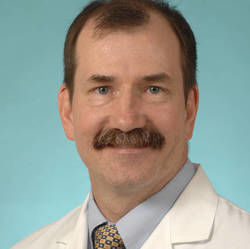Call Now Open
2026 Oxford-Harrington Rare Disease Scholar Award

Metabolic
Novel Treatment of Non-Alcoholic Fatty Liver Disease
2019 Harrington Scholar-Innovator
In the US, heart disease, prostate cancer and high blood pressure are among the most commonly discussed health conditions, all considered particularly dangerous due to their lack of symptoms.
But a far less familiar, yet significantly more common symptomless condition is non-alcoholic fatty liver disease (NAFLD), which affects a quarter of the world's population.
With NAFLD, too much fa is stored in liver cells, preventing the liver from functioning normally. It can lead to hypertension, cardiovascular disease, diabetes, even liver failure.
Dr. Hruz has made exciting headway on NAFLD with science that builds on the shoulders of insights gained through HIV research, as well as decades of glucose transporter biology studies. Glucose, essential for cellular respiration, crosses the membrane and enters cells via glucose transporters - proteins abbreviated as GLUT.
"In the liver, GLUT8 senses whether or not the body has enough fuel," Dr. Hruz says. "We are developing a new drug aimed at blocking this previously unrecognized mechanism - in essence tricking the liver into thinking it's starving, which leads to increased burning of fat in order to provide more energy."
Dr. Hruz' team is working with the Harrington Discovery Institute to make the compounds more potent, and to ensure they work on GLUT8 and none of the other 13 human GLUTs.
“It's indispensable to have programs like Harrington's - because to succeed requires a whole different skill set than the scientific lab work. We can't do it alone."
Source: Article from 2019-20 Annual Publication.